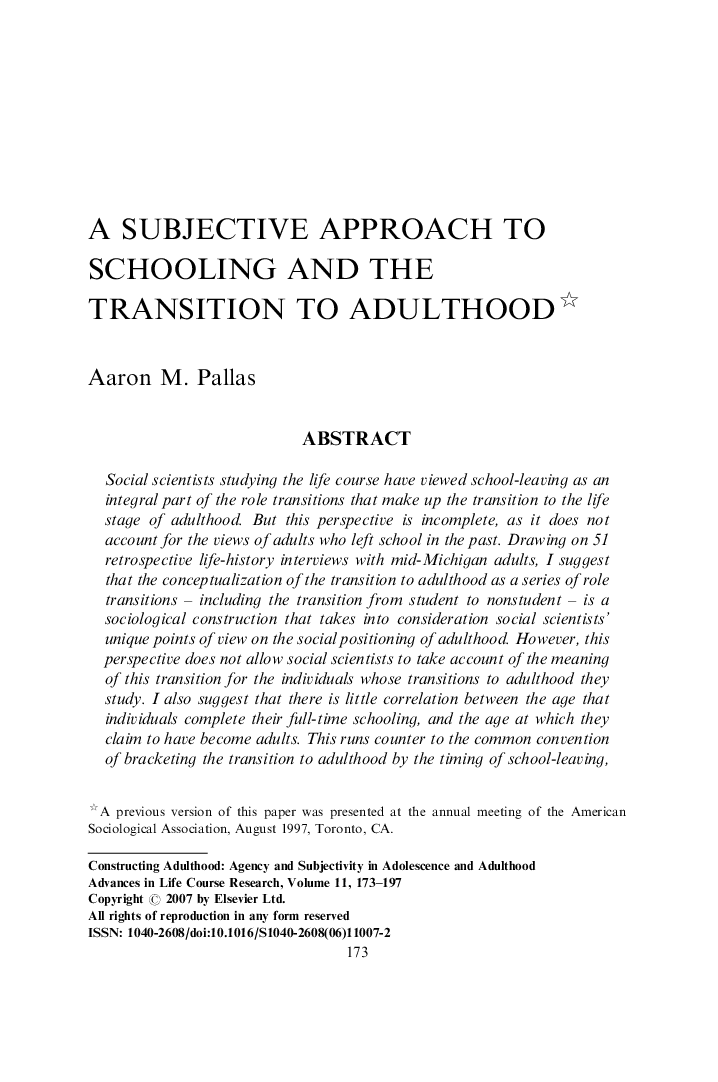| Article ID | Journal | Published Year | Pages | File Type |
|---|---|---|---|---|
| 313306 | Advances in Life Course Research | 2006 | 25 Pages |
Social scientists studying the life course have viewed school-leaving as an integral part of the role transitions that make up the transition to the life stage of adulthood. But this perspective is incomplete, as it does not account for the views of adults who left school in the past. Drawing on 51 retrospective life-history interviews with mid-Michigan adults, I suggest that the conceptualization of the transition to adulthood as a series of role transitions – including the transition from student to nonstudent – is a sociological construction that takes into consideration social scientists’ unique points of view on the social positioning of adulthood. However, this perspective does not allow social scientists to take account of the meaning of this transition for the individuals whose transitions to adulthood they study. I also suggest that there is little correlation between the age that individuals complete their full-time schooling, and the age at which they claim to have become adults. This runs counter to the common convention of bracketing the transition to adulthood by the timing of school-leaving, beginning work, and starting a family. Finally, I suggest that defining adulthood at least partly in terms of school-leaving fails to provide an adequate understanding of the increasingly common return to schooling in mid-life. These examples suggest that social scientists study people's lives from a viewpoint that varies substantially from the viewpoints of those people, but that they do so without subjecting these people's viewpoints to analysis under a sociological lens. I conclude by calling for a social scientific understanding of the life course that goes beyond a partial accounting of role transitions by creating theories that take into account the subjective meanings of role transitions from the standpoints of the actors themselves.
